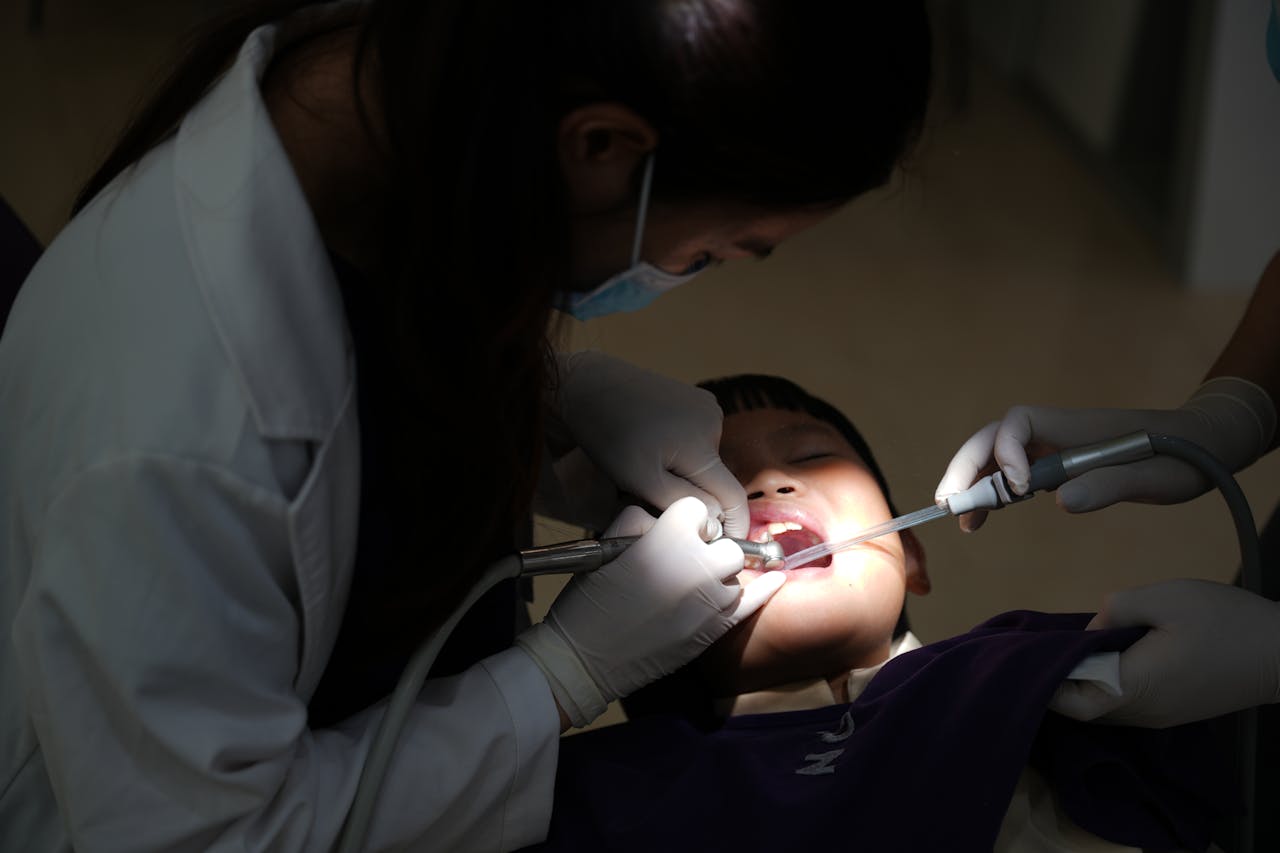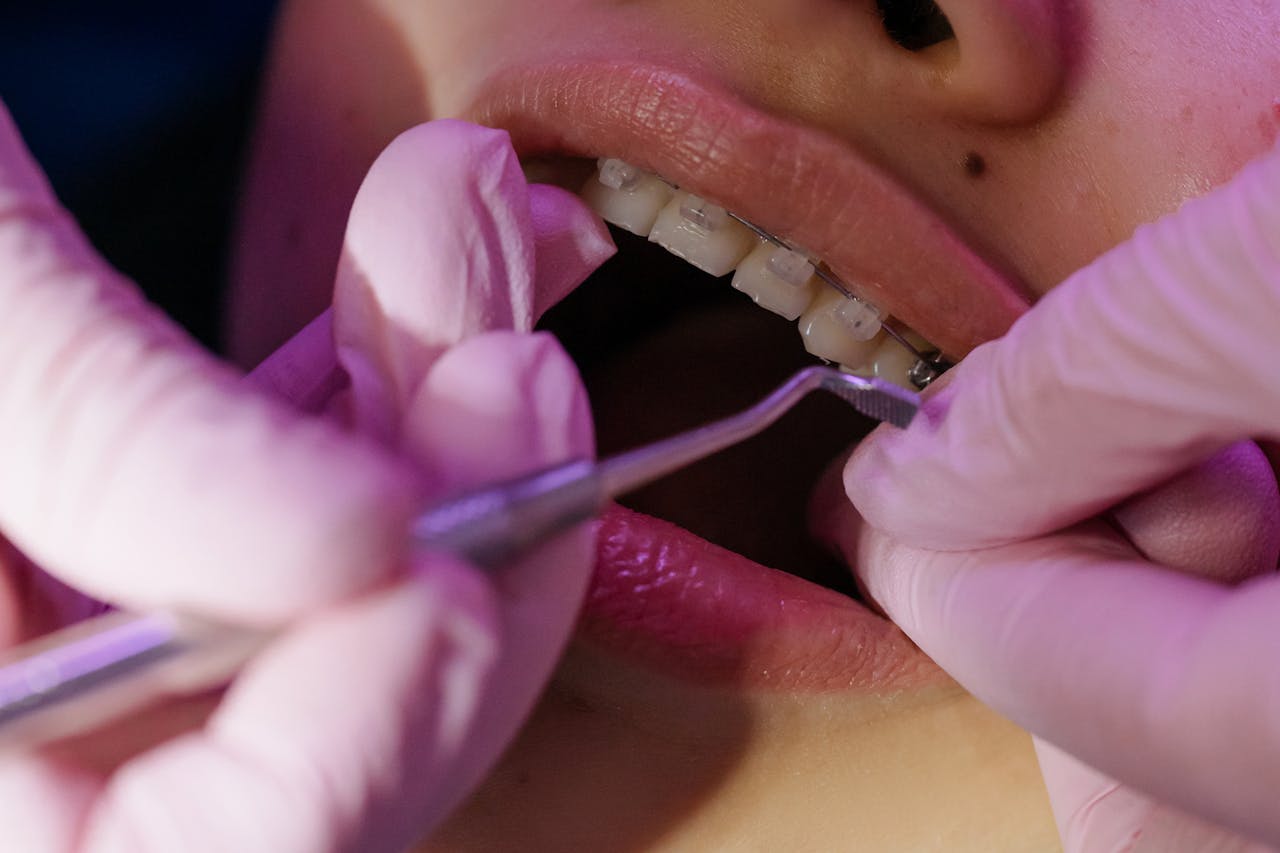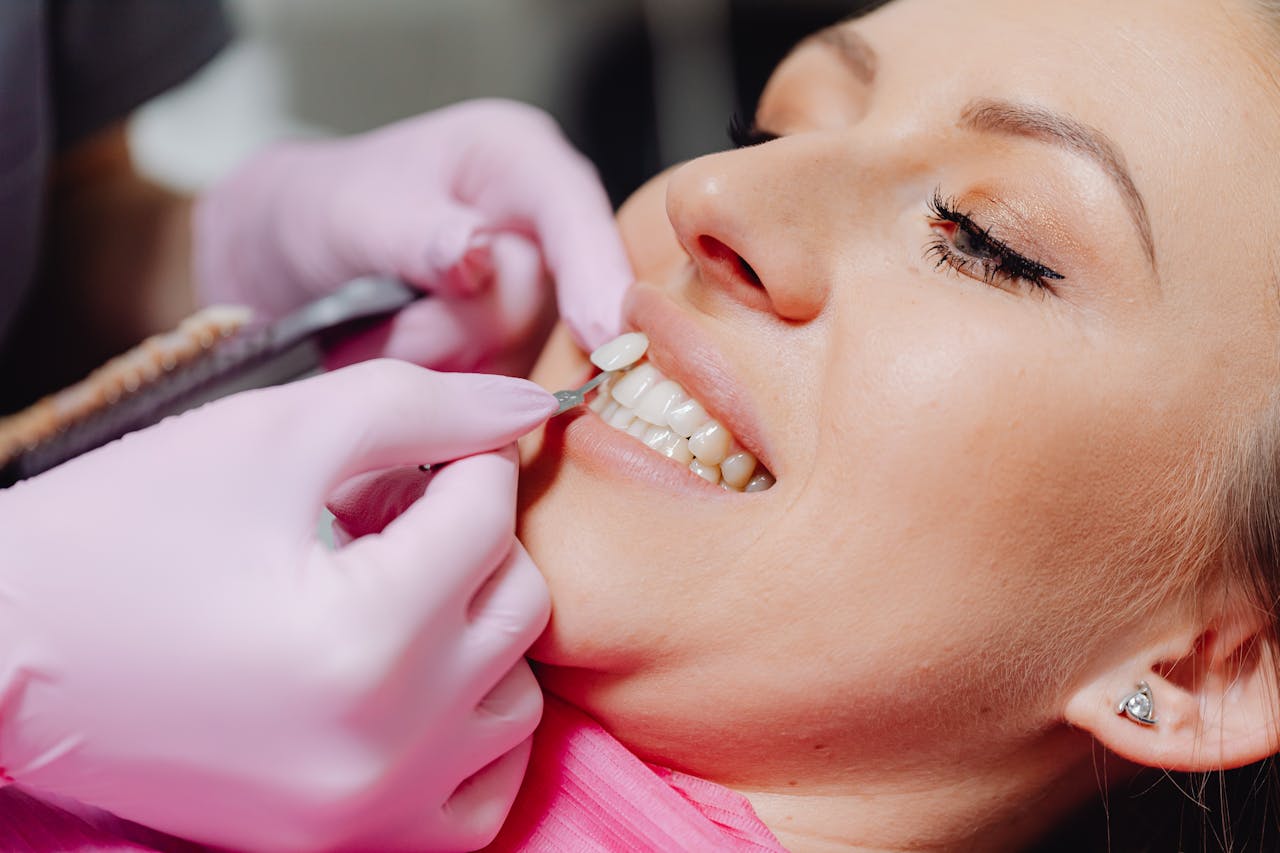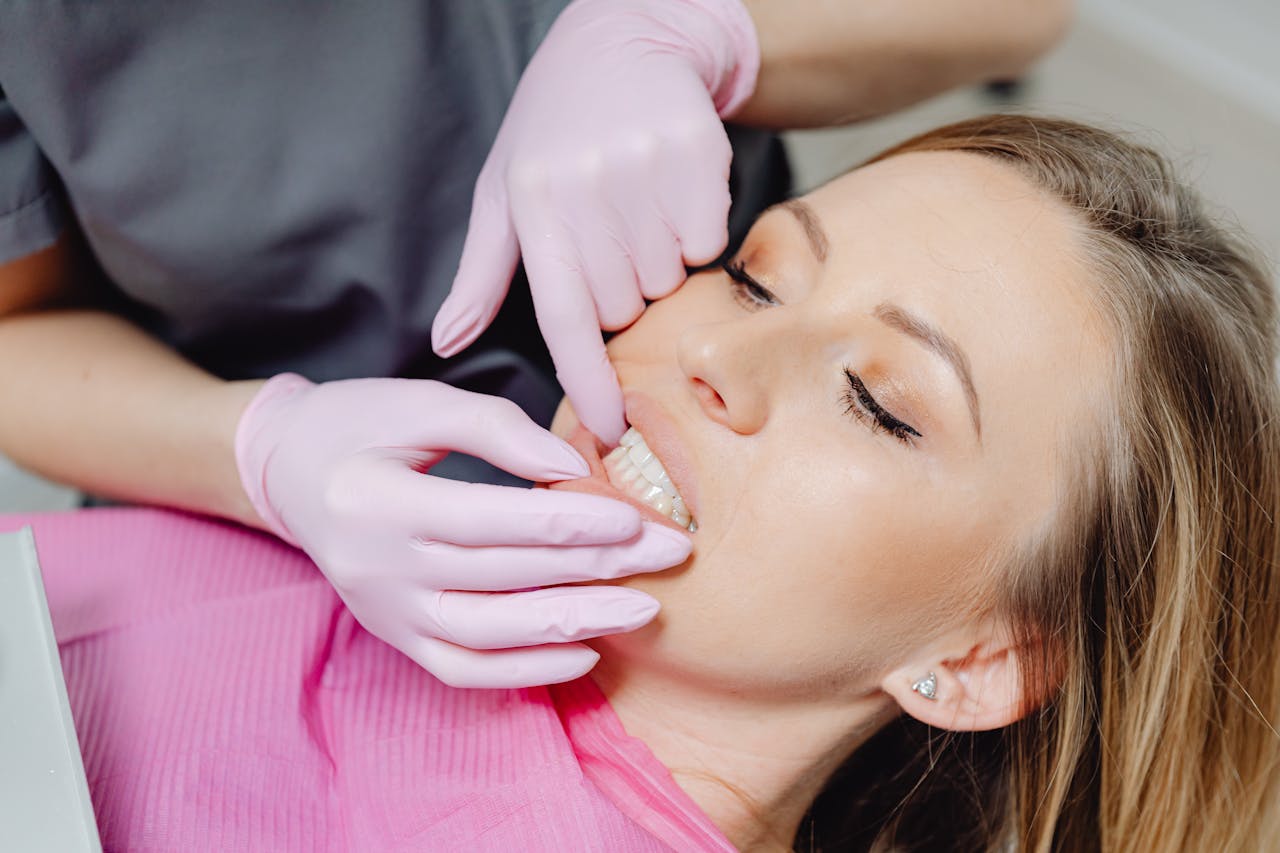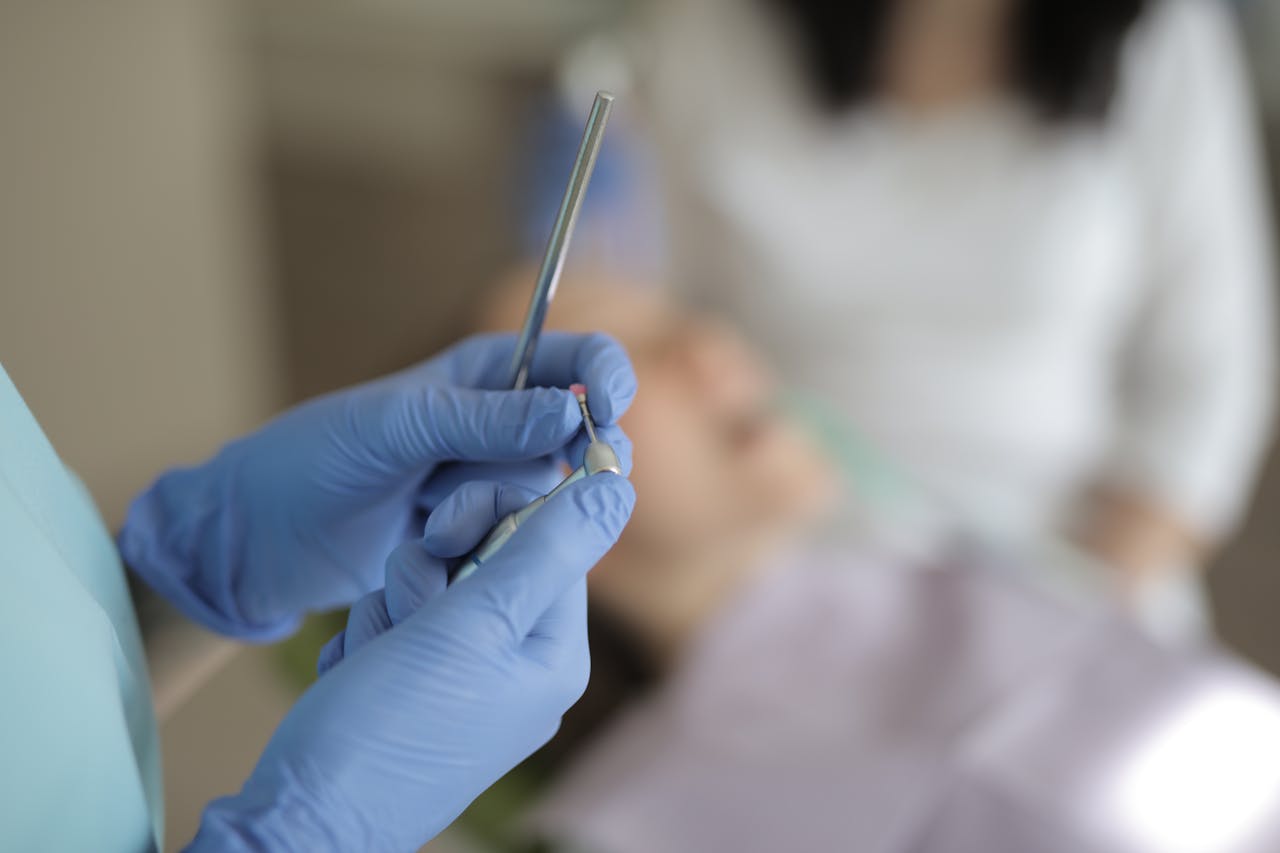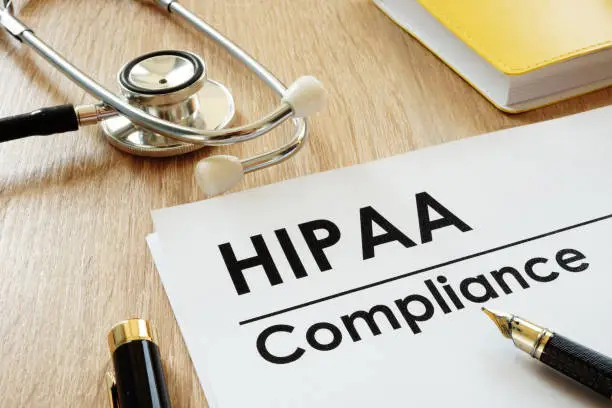












Blog Article


17 HIPAA Compliance in Dentistry Statistics - 2026
HIPAA compliance remains a critical concern for dental practices across the United States, with regulations affecting nearly every aspect of patient data handling and privacy protection. The dental industry faces unique challenges in maintaining compliance while providing quality patient care, from managing electronic health records to securing physical spaces where patient information is stored.
Dental practices that fail to maintain proper HIPAA compliance face substantial financial penalties, with violations averaging $50,000 per incident and enforcement actions increasing significantly in recent years. Understanding the current state of HIPAA compliance for dentists requires examining key statistics that reveal both the scope of compliance challenges and the financial impact of violations.
1) Over 90% of dental offices are considered HIPAA covered entities
Most dental practices fall under HIPAA regulations as covered entities. This means they electronically transmit health information for standard transactions like insurance claims or treatment authorizations.
The classification applies regardless of practice size. Solo practitioners and large dental groups both qualify as covered entities when they handle electronic health data.
Dental practices become covered entities when they submit insurance claims electronically. This includes processing payments, eligibility verification, and prior authorization requests through electronic systems.
HIPAA compliance requirements for dental practices include implementing administrative, physical, and technical safeguards. These protections secure patient health information from unauthorized access or breaches.
Some dental offices may not qualify as covered entities if they only accept cash payments and never transmit health information electronically. However, this represents a very small percentage of modern dental practices.
The high percentage reflects how digital systems have transformed dental practice management. Electronic health records, digital imaging, and online appointment systems create electronic health information that triggers HIPAA obligations.
Understanding covered entity status helps dental professionals recognize their legal responsibilities. HHS provides current compliance data showing enforcement trends across healthcare sectors.
2) 70% of dental practices have reported at least one HIPAA compliance training session in the last year
Most dental practices recognize the importance of regular HIPAA training for their staff. This statistic shows that the majority of dental offices are taking proactive steps to maintain compliance.
The training rate varies across different practice sizes and locations. Larger dental practices and those in urban areas tend to have higher training completion rates.
HIPAA training trends in healthcare show that consistent education helps reduce violations. Training sessions typically cover patient privacy rights, proper handling of protected health information, and security measures.
Dental practices that conduct regular training sessions report fewer compliance issues. These sessions help staff understand current regulations and proper procedures for handling patient data.
The remaining 30% of practices without recent training face higher risks of violations and penalties. Regular training is essential for protecting patient information and avoiding costly fines.
Dental HIPAA training programs offer specialized courses designed for dental office environments. These programs address specific scenarios that dental staff encounter daily.
Training frequency recommendations suggest at least annual sessions for all staff members. New employees should receive training within their first month of employment.
3) Dental practices face an average fine of $50,000 per HIPAA violation
HIPAA violation fines can range from $100 to $50,000 per incident depending on the severity and circumstances. The maximum penalty reaches $1.5 million per year for repeated violations of the same provision.
Several dental practices have received the maximum $50,000 fine for single violations. A North Carolina dental practice paid $50,000 for sharing patient health information online while responding to a negative review.
Another case involved a Virginia dental practice that received a $50,000 penalty for a breach of unsecured electronic patient records. These cases show that even single incidents can result in substantial financial penalties.
The Office for Civil Rights determines fine amounts based on several factors. They consider the level of negligence, harm caused to patients, number of people affected, and the practice's previous compliance history.
Penalties for violating HIPAA include both civil and criminal consequences. Criminal penalties may apply in cases involving intentional wrongdoing or repeated violations.
Dental practices must implement proper safeguards to protect patient information and avoid these costly penalties.
4) 60% of dental offices use electronic health records (EHR) subject to HIPAA regulations
Dental practices across the United States have embraced digital technology at impressive rates. The rate of chairside computer implementation was 72% in dental offices by 2012.
Electronic health records in dental practices store sensitive patient information including treatment histories, medical conditions, and payment details. This digital patient data falls under HIPAA protection requirements.
Dental offices using EHR systems must implement proper security measures. These include encrypted data storage, secure user access controls, and regular system backups.
Staff training becomes essential when dental practices adopt electronic record systems. Team members need education on proper data handling procedures and privacy protocols.
The transition from paper records creates new compliance challenges for dental practices. HIPAA provides the framework for safeguarding sensitive patient information as practices move to digital systems.
Dental practices must conduct regular risk assessments of their EHR systems. They need to identify potential vulnerabilities and address security gaps promptly.
Patient portal adoption remains lower in dental practices compared to medical offices. However, practices offering online access must ensure these portals meet HIPAA security standards.
5) More than 30% of dental practices experienced a HIPAA-related data breach in the past 3 years.
Dental practices face significant cybersecurity threats, with over one-third experiencing data breaches in recent years. This statistic highlights the vulnerability of patient health information in dental settings.
Healthcare data breaches have increased dramatically, affecting dental practices nationwide. Small and mid-sized dental offices are particularly vulnerable due to limited IT security resources.
The average cost of a healthcare data breach reaches $10.93 million according to recent studies. For dental practices, even smaller breaches can result in substantial financial penalties and reputation damage.
Common breach causes include phishing attacks targeting staff emails, unsecured patient databases, and compromised practice management software. Many dental practices lack proper cybersecurity training for employees.
Ransomware attacks specifically target healthcare providers, including dental offices, because they handle sensitive patient data. These attacks can shut down operations for days or weeks.
Business associates of dental practices, such as billing companies and software vendors, also present breach risks. When these partners experience security incidents, dental practices may face compliance violations.
Regular HIPAA compliance audits help identify vulnerabilities before breaches occur. Dental practices must implement proper safeguards, staff training, and incident response plans to protect patient information effectively.
6) Failure to provide timely patient access to dental records is among the top 5 HIPAA violations in dentistry
Dental practices consistently face penalties for failing to provide patients with timely access to their medical records. This violation ranks among the most common HIPAA infractions in dentistry.
The Office for Civil Rights launched a specific Right of Access initiative in 2019. This program prioritizes enforcement actions against healthcare providers who deny or delay patient record requests.
Recent enforcement actions demonstrate the serious financial consequences. Three dental providers settled cases for potential HIPAA violations with penalties ranging from $25,000 to $80,000.
One Maryland practice received a $70,000 civil monetary penalty for record access delays. This marked the 50th financial penalty under the Right of Access initiative.
Dental practices must provide records within 30 days of a patient request. Charging excessive copying fees also violates HIPAA regulations. Several practices faced additional penalties for unreasonable copying costs beyond the actual production expenses.
The enforcement pattern shows dental offices are frequent targets for these violations. Practices should establish clear procedures for handling patient record requests promptly.
7) The Office of Civil Rights increased dental enforcement actions by 15% in 2026 compared to 2026
The Office for Civil Rights ramped up enforcement against dental practices in 2024. This increase targets common violations that many dental offices continue to make.
Most enforcement actions focus on patient access rights and data breach responses. Dental practices face penalties when they fail to provide patients with copies of their medical records within required timeframes.
Three dental practices faced enforcement actions for potential HIPAA violations, including failure to provide patient records. Solo practitioners and small dental offices represent the majority of these cases.
The increased enforcement reflects OCR's priority on healthcare data protection. HIPAA violation fines can range from thousands to millions of dollars depending on the severity.
Dental practices must implement proper procedures for patient record requests. They need written policies for breach notification and staff training on HIPAA requirements.
The 15% increase signals that dental offices can no longer assume they will avoid scrutiny. OCR now actively investigates complaints against dental practices of all sizes.
8) Over 80% of dental staff in compliant practices receive annual HIPAA privacy training
Most dental practices that maintain strong HIPAA compliance provide yearly privacy training to their entire staff. This pattern shows a clear commitment to protecting patient information.
Annual HIPAA training helps staff stay updated on privacy rules and security practices. New regulations and threats emerge regularly, making refresher courses essential for maintaining compliance.
Dental offices that invest in regular training see fewer privacy violations and data breaches. Staff members become more confident in handling patient information when they receive consistent education.
Training programs typically cover patient communication, record handling, and technology use. Many practices schedule these sessions during staff meetings or use online modules for flexibility.
Dental practices should focus on practical scenarios during training sessions. Real-world examples help staff understand how HIPAA rules apply to their daily tasks.
The most effective training combines initial onboarding education with yearly updates. This approach ensures new employees learn proper procedures while experienced staff stays current with changing requirements.
9) Approximately 25% of dental offices use encrypted email communications for patient information sharing.
Email encryption remains underutilized in dental practices despite growing cybersecurity threats. Only one in four dental offices currently implements encrypted email systems for patient communications.
HIPAA regulations require dental practices to protect patient health information during electronic transmission. Email encryption for dental practices helps offices meet these compliance requirements while preventing data breaches.
Unencrypted emails containing patient information create significant liability risks. Standard email platforms transmit messages in plain text, making sensitive dental records vulnerable to interception.
Most dental offices still rely on basic email systems or phone calls for patient communications. This gap leaves three-quarters of practices exposed to potential HIPAA violations and security incidents.
Encrypted email solutions automatically secure patient information during transmission. These systems ensure that treatment plans, appointment details, and medical records remain protected from unauthorized access.
The low adoption rate often stems from cost concerns and technical complexity. However, modern encrypted email platforms designed for healthcare providers offer user-friendly interfaces and affordable pricing structures.
Dental practices using encrypted communications report improved patient trust and reduced compliance anxiety. These systems also enable more efficient coordination with specialists and insurance providers while maintaining security standards.
10) PHI breaches in dental practices cost an average of $200 per record compromised
Data breaches in dental practices create significant financial losses beyond just regulatory fines. Each patient record that gets compromised costs dental practices approximately $200 on average.
This per-record cost includes multiple expenses that practices must handle after a breach occurs. Legal fees, forensic investigations, and patient notifications add up quickly when sensitive dental information gets exposed.
The average cost per record involved in a data breach was $165 across all industries in 2023. However, healthcare-related breaches typically cost more due to the sensitive nature of medical information.
Dental practices face additional costs from lost patients who lose trust after their personal health information gets stolen. Business disruption during breach response can also reduce daily revenue for weeks or months.
Small dental practices with limited IT resources often face higher per-record costs than larger organizations. They typically lack dedicated cybersecurity staff and must hire external experts to handle breach response and recovery efforts.
11) Dental offices with dedicated HIPAA compliance officers have 40% fewer violations
Dental practices that designate a specific HIPAA compliance officer see significantly better compliance outcomes than those without dedicated oversight. This focused approach creates accountability and ensures consistent implementation of privacy protection measures.
One in seven healthcare organizations lacks a designated compliance officer, leaving them vulnerable to violations and potential penalties. Dental offices without this role often struggle with fragmented compliance efforts across multiple staff members.
A dedicated compliance officer develops comprehensive policies, conducts regular staff training, and monitors daily operations for HIPAA adherence. They serve as the central point of contact for patient privacy concerns and regulatory updates.
The 40% reduction in violations stems from proactive risk management rather than reactive problem-solving. These officers identify potential compliance gaps before they become costly violations.
Staff members in offices with compliance officers receive more consistent training and clearer guidance on patient privacy protocols. This structured approach eliminates confusion about proper procedures for handling protected health information.
HIPAA compliance training during employee orientation becomes more effective when overseen by a dedicated professional who understands both regulatory requirements and dental practice workflows.
12) Cybersecurity threats account for 45% of HIPAA breaches in dental offices
Cybersecurity incidents represent nearly half of all HIPAA violations in dental practices. These digital threats pose serious risks to patient data protection and practice compliance.
Hacking and IT-related incidents have become the leading cause of healthcare data breaches. Breaches due to hacking incidents increased 45% from 2019 to 2020 across all healthcare sectors.
Dental offices face unique cybersecurity challenges due to limited IT resources and smaller security budgets. Many practices lack dedicated cybersecurity staff to monitor and prevent digital threats.
Insider threats account for 32% of cybersecurity incidents in healthcare, highlighting risks from employees and internal access points. This includes both malicious actions and accidental data exposure by staff members.
Ransomware attacks specifically target dental practices because of their valuable patient data and often weaker security systems. These attacks can shut down operations for days while demanding payment for data recovery.
Email phishing remains a common entry point for cybercriminals targeting dental offices. Staff members may unknowingly click malicious links that compromise entire practice networks and patient databases.
13) Only 55% of dental offices secure physical access to areas storing patient records.
Physical security remains a critical gap in dental practice compliance. Less than half of dental offices properly restrict access to areas where patient records are stored.
This statistic reveals a significant vulnerability in HIPAA compliance. Physical safeguards require dental practices to control who can access patient information storage areas.
Unsecured storage areas put practices at risk for data breaches. Staff members, cleaning crews, or visitors could potentially access confidential patient files without proper authorization.
Healthcare data breaches continue to increase across medical facilities. Physical access violations represent one of the most preventable types of security incidents.
Dental practices must implement locked file cabinets, restricted access rooms, or secure storage systems. Only authorized personnel should have keys or access codes to these areas.
Simple security measures can dramatically improve compliance rates. Installing locks, security cameras, or keycard systems helps protect patient information from unauthorized access.
The remaining 45% of non-compliant offices face potential fines and legal consequences. HIPAA violations for inadequate physical safeguards can result in penalties ranging from thousands to millions of dollars depending on the severity.
14) Dental HIPAA enforcement fines have increased by 20% annually over the past 5 years
Dental practices face mounting financial penalties as HIPAA enforcement intensifies across healthcare sectors. HIPAA penalties now carry higher monetary amounts following recent inflation adjustments by HHS.
The Office for Civil Rights has specifically targeted dental offices for compliance failures. Three dental offices recently paid fines for violating patient record access requirements under HIPAA.
Dental practices commonly face penalties for failing to provide timely patient record access. These violations often involve charging excessive fees or delaying record requests beyond HIPAA's 30-day requirement.
The steady increase in dental HIPAA fines reflects broader healthcare enforcement trends. Healthcare organizations now experience increased scrutiny of their data security practices and compliance programs.
Penalties can range from hundreds to thousands of dollars per violation. Repeat offenses or willful neglect carry significantly higher financial consequences for dental practices.
15) 70% of dental practices use HIPAA-compliant software solutions for managing patient data
Most dental practices now rely on specialized software to handle patient information securely. This shift reflects the growing need to protect sensitive health data while maintaining efficient operations.
HIPAA-compliant software comes in various forms, including practice management systems, electronic health records, and patient communication platforms. These tools help dental offices meet federal privacy requirements automatically.
Practice management software handles appointment scheduling, billing, and patient records in one system. Electronic health record platforms store clinical notes, treatment plans, and medical histories securely.
Many dental offices choose HIPAA-compliant texting solutions for patient communication. These systems encrypt messages and protect patient privacy during routine interactions.
Software solutions reduce the risk of data breaches through built-in security features. They include user access controls, audit trails, and automatic data encryption.
Dental practices that use compliant software spend less time on manual privacy procedures. The technology handles many compliance requirements automatically, allowing staff to focus on patient care.
16) Physical safeguards like locked cabinets are implemented in 65% of dental offices handling PHI.
Physical safeguards represent a critical component of HIPAA compliance in dental practices. These measures protect patient health information stored in physical formats like paper charts, X-rays, and computer workstations.
Locked filing cabinets serve as the most common physical safeguard in dental offices. They prevent unauthorized access to patient records when staff members are away from their workstations.
Secure storage areas for backup media and portable devices also fall under physical safeguard requirements. Many practices use fireproof safes or locked rooms to store external hard drives and USB devices containing patient data.
Access controls for server rooms and computer areas help limit who can reach sensitive information systems. HIPAA rules for dentists require the same physical protection standards as other healthcare providers.
Workstation security measures include positioning computer screens away from public view and using privacy screens. Auto-logout features prevent unauthorized access when computers are left unattended.
The 65% implementation rate suggests many dental practices still need to strengthen their physical security measures. Proper physical safeguards reduce the risk of data breaches and potential HIPAA violations.
17) HIPAA audits in dental practices show common issues with risk assessments and policy updates
HIPAA audits consistently reveal the same compliance problems across dental practices. The Office for Civil Rights finds that many dental offices lack proper documentation and technical configurations.
Risk assessments represent the most common compliance gap found during audits. Many practices either skip risk assessments entirely or conduct incomplete evaluations that miss critical vulnerabilities.
Policy documentation creates another major audit issue. Dental practices often rely on vendor tools for daily operations but fail to maintain formal policies that demonstrate compliance efforts.
Outdated security measures frequently appear in audit findings. Practices may have older systems that no longer meet current HIPAA technical safeguards requirements.
Staff training documentation gaps also trigger audit violations. Many dental offices provide informal training but lack written records proving employees received proper HIPAA education.
Annual risk assessments and management plans help prevent these common violations. Regular policy updates and documented training programs address the most frequent audit findings.
Dental practices that conduct internal audits before official inspections typically perform better during actual HIPAA compliance reviews.
HIPAA Compliance in Dentistry
HIPAA compliance for dental practices involves following specific federal regulations to protect patient health information. Dental staff must understand their responsibilities in maintaining patient privacy and implementing proper safeguards.
Key HIPAA Regulations for Dental Practices
The Health Insurance Portability and Accountability Act requires dental practices to protect all patient health information. This includes written records, digital files, and verbal communications about patient care.
Administrative Safeguards
- Assign a HIPAA compliance officer
- Train all staff on privacy policies
- Conduct regular risk assessments
- Maintain documentation of compliance efforts
Physical Safeguards
- Secure filing cabinets and storage areas
- Control access to patient records
- Position computer screens away from public view
- Implement clean desk policies
Technical Safeguards
- Use encryption for electronic communications
- Install password protection on all devices
- Maintain automatic logoff systems
- Regular software updates and security patches
Dental practices must obtain written patient consent before sharing health information. They can only share information for treatment, payment, or healthcare operations without additional authorization.
Violations can result in fines ranging from $100 to $50,000 per incident. The maximum annual penalty reaches $1.5 million for repeated violations.
Role of Dental Staff in HIPAA Compliance
Every team member in a dental practice has specific responsibilities for protecting patient information. Front desk staff, hygienists, assistants, and dentists must follow the same privacy standards.
Staff Training Requirements
- Initial HIPAA training for all new employees
- Annual refresher courses
- Documentation of completed training
- Role-specific privacy procedures
Daily Compliance Activities
- Verify patient identity before discussing treatment
- Speak quietly when discussing patient information
- Log off computers when stepping away
- Secure patient files immediately after use
Staff must report potential privacy breaches immediately to the compliance officer. Even minor incidents like leaving a file open or discussing a patient in public areas require documentation.
Effective compliance programs include regular self-audits and incident response plans. Practices should conduct monthly reviews of their privacy procedures and update policies as needed.
The compliance officer should maintain a log of all training sessions, policy updates, and incident reports. This documentation proves the practice takes HIPAA requirements seriously during audits or investigations.
Impact of HIPAA Violations in Dental Settings
HIPAA violations in dental practices stem from common operational oversights and can result in substantial financial penalties and legal consequences. These breaches often occur through improper handling of patient records, inadequate staff training, and insufficient security measures.
Common Causes of HIPAA Breaches in Dentistry
Dental practices face unique challenges that lead to HIPAA violations in the dental field. The most frequent causes stem from everyday operational practices that staff members often overlook.
Improper disposal of patient information ranks among the top violations. Many dental offices fail to shred appointment schedules, treatment notes, and insurance forms before disposal. This creates easy access points for unauthorized individuals to obtain protected health information.
Unsecured communication methods present another major risk. Staff members who discuss patient cases in public areas, send unencrypted emails with patient details, or leave voicemails containing sensitive information violate HIPAA regulations.
Inadequate access controls frequently occur when practices fail to limit computer access. Multiple employees sharing login credentials or failing to log out of systems creates opportunities for unauthorized access to patient records.
Mobile device security poses growing concerns as dental practices increasingly use tablets and smartphones for patient management. Devices without proper encryption or password protection become security vulnerabilities when lost or stolen.
Legal and Financial Consequences
The financial impact of HIPAA violations can be severe for dental practices. The Department of Health and Human Services imposes penalties ranging from $137 to $2.07 million per incident, depending on the violation's severity and duration.
Tier-based penalty structure determines fine amounts:
- Unknowing violations: $137-$68,928 per incident
- Reasonable cause: $1,379-$68,928 per incident
- Willful neglect (corrected): $13,785-$68,928 per incident
- Willful neglect (not corrected): $68,928-$2,067,813 per incident
Recent HHS enforcement actions demonstrate the increasing scrutiny on healthcare practices of all sizes. Small dental offices receive the same penalties as large hospital systems when violations occur.
Reputation damage often exceeds financial penalties. Patients lose trust when their private health information becomes compromised. This leads to patient attrition and difficulty attracting new patients.
Legal costs accumulate rapidly during investigations and potential lawsuits. Practices must hire specialized attorneys and compliance consultants to navigate enforcement proceedings and implement corrective action plans.
Frequently Asked Questions
Dental professionals commonly face specific HIPAA compliance challenges that result in violations and penalties. Understanding training requirements, compliance checklists, and available resources helps dental practices maintain proper patient data protection.
What are common HIPAA violations in dental offices?
Dental offices frequently violate HIPAA through improper disposal of patient records and unsecured email communications. Staff members often discuss patient information in public areas where unauthorized individuals can overhear conversations.
Unauthorized access to patient files represents another major violation. This happens when employees view records without legitimate business reasons or leave computer screens unlocked.
Failure to obtain proper patient authorization before sharing information with family members or other providers creates compliance issues. Many dental practices also struggle with maintaining signed business associate agreements with vendors who handle patient data.
Inadequate staff training leads to unintentional violations. Employees may post patient photos on social media or leave patient charts visible in treatment areas where others can see them.
How can a dental clinic ensure full HIPAA compliance?
Dental clinics must designate a HIPAA compliance officer responsible for overseeing all privacy and security measures. This person monitors compliance activities and addresses violations promptly.
Regular risk assessments identify vulnerabilities in patient data handling processes. Clinics should evaluate physical, technical, and administrative safeguards quarterly to ensure effectiveness.
Written policies and procedures must cover all aspects of patient information handling. These documents should address access controls, breach response procedures, and employee responsibilities clearly.
Encryption of all electronic patient data protects information during transmission and storage. Dental practices should implement secure communication systems for sending patient information to other providers or insurance companies.
Regular employee training sessions keep staff updated on HIPAA regulations for dentists and proper data handling procedures. Documentation of training completion demonstrates compliance efforts.
What are the essential elements of a HIPAA compliance checklist for a dental office?
Physical safeguards include locked filing cabinets for paper records and restricted access to areas containing patient information. Computer screens should face away from public areas and automatically lock after periods of inactivity.
Administrative safeguards require written privacy policies, staff training documentation, and incident response procedures. Dental offices must maintain business associate agreements with all vendors handling protected health information.
Technical safeguards involve password protection for all systems, encryption of electronic data, and regular software updates. Access controls ensure only authorized personnel can view specific patient records.
Patient rights documentation includes privacy notices, authorization forms, and procedures for handling patient requests to access or amend records. Offices must track all disclosures of patient information.
Breach notification procedures outline steps for identifying, containing, and reporting security incidents. This includes notifying affected patients and regulatory authorities within required timeframes.
What HIPAA rules must be strictly followed within dental practices?
The Privacy Rule limits how dental practices use and disclose protected health information. Practices can only share patient data for treatment, payment, or healthcare operations without additional authorization.
The Security Rule requires specific safeguards for electronic protected health information. Dental practices must implement access controls, audit logs, and encryption for all digital patient data.
The Breach Notification Rule mandates reporting security incidents affecting 500 or more patients to the Department of Health and Human Services within 60 days. Smaller breaches must be reported annually.
Minimum necessary standards require limiting access to patient information based on job responsibilities. Staff members should only access the minimum amount of data needed to perform their duties.
Patient authorization requirements apply when sharing information for purposes beyond treatment, payment, or operations. Marketing communications and research activities typically require written patient consent.
What resources are available for HIPAA training in the dental field?
The American Dental Association provides comprehensive HIPAA training materials specifically designed for dental professionals. These resources include webinars, written guides, and compliance tools tailored to dental practice needs.
Online training platforms offer interactive courses covering all aspects of HIPAA compliance. These programs allow staff members to complete training at their own pace and provide completion certificates.
Professional dental organizations conduct workshops and seminars on HIPAA compliance topics. These events provide opportunities for networking and learning about best practices from other dental professionals.
Healthcare consulting firms specializing in dental practices offer customized training programs. These services include on-site training sessions and ongoing compliance support tailored to specific practice needs.
Government resources include guidance documents from the Department of Health and Human Services. These materials provide official interpretations of HIPAA requirements and compliance expectations.
How frequently should dental staff undergo HIPAA training to maintain compliance?
Dental staff should receive initial HIPAA training within 30 days of employment. This training must cover all relevant privacy and security policies before employees handle patient information.
Annual refresher training ensures staff members stay current with regulatory changes and practice policies. This training should address common violations and reinforce proper data handling procedures.
Additional training becomes necessary when practices implement new technologies or modify existing procedures. Staff members need updated instruction whenever systems or processes change.
Incident-based training should occur following any HIPAA violation or security breach. This targeted education helps prevent similar incidents and reinforces compliance expectations.
Documentation of all training sessions demonstrates compliance efforts during audits or investigations.
Similar Articles
Ready to Get Started
Have Questions?
We're Here to Help
Connect with our team for personalized guidance
No setup fees, cancel anytime.
.avif)

.svg)
.svg)
